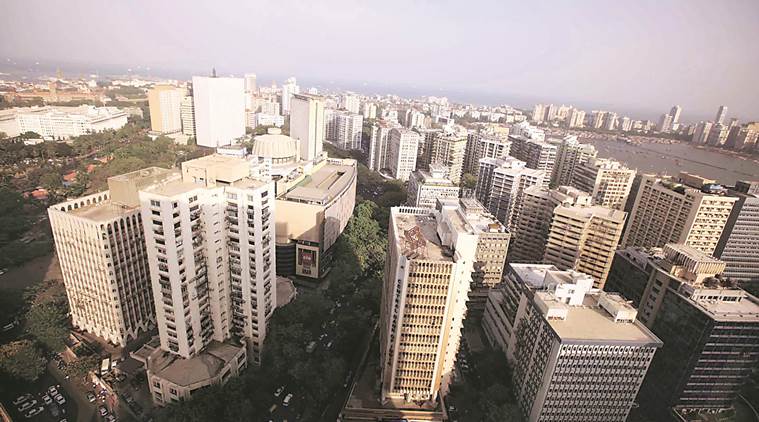Stay updated with the latest - Click here to follow us on Instagram
State plan to release more buildable space in Mumbai
Policy permits private redevelopment of state-owned leased land.

The Maharashtra government has a new plan to release more developable land in the space-starved commercial capital of the country. In a move that will unlock more buildable space in Mumbai, the Devendra Fadnavis government has announced a policy permitting private redevelopment or urban renewal of state-owned leased land.
While the plan will apply to long-term leases across the state, Mumbai, which has the highest number of land tenures, will be impacted the most.
In Mumbai city district, where land prices command a premium, the government has granted 1,282 long-term leases. Of this, 691 are up for renewal. In Suburban Mumbai, the government has granted another 1,500-odd lease, sources said.
Enabling the government to monetise its land parcels, the new policy states that developers interested in redeveloping the lease lands would have to pay a premium to the state government.
The state’s revenue department, which is the custodian of such properties, will collect a premium of 25% of ready reckoner value of the property for permitting residential, commercial and industrial redevelopment. For redevelopment for educational and religious purposes, the premium payable would be 12.5 per cent.
Ready reckoner (RR) values are market values of the property determined by the government every year.
On April 13, the revenue department issued a government resolution notifying the policy. Earlier, the state Cabinet had given a go-ahead to it.
Incidentally, the policy also allows for regularisation of cases where redevelopment of lease lands had been undertaken without the government’s prior consent. A penalty, amounting to an additional premium of 5 per cent of the RR values, will be levied in such cases.
In the island city of Mumbai where a number of lease grants exist from the pre-Independence era, the Mumbai Collector’s office had found several cases where third-party rights had been created and redevelopment carried out without the government’s consent.
A senior state official said that for cases where the lessee had illegally sold, transferred, or assigned the lease to another party, permission for any redevelopment would be processed only after payment of applicable unearned income.
Besides the premium against the permission to redevelop, the developers will also be entitled to pay premiums applicable as per the prevalent norms for utilisation of paid floor space index and transferable development rights for the redevelopment project.
While transfer or sale of tenancies or rehabilitation tenements will be permitted, the government has said that the beneficiary would be required to pay a transfer or licence fee.
Incidentally, the government has barred the developers or tenants of such redevelopment projects to mortgage the land or the tenements without its prior consent.
While making the Collector the decision-making authority in cases where there were no change of use and the redevelopment was in consonance with the development control regulations, the government has ruled that the Collector would have to seek the government’s sanction before validating any redevelopment proposal.
The government has also clarified that the land tenure would continue to remain leasehold and the terms and conditions imposed at the time of allotment of the lease would continue to be in place even after the redevelopment.
The Comptroller and Auditor General (CAG) of India had earlier come down heavily on the government for mismanagement of revenue lands leased to private institutions and trusts.







